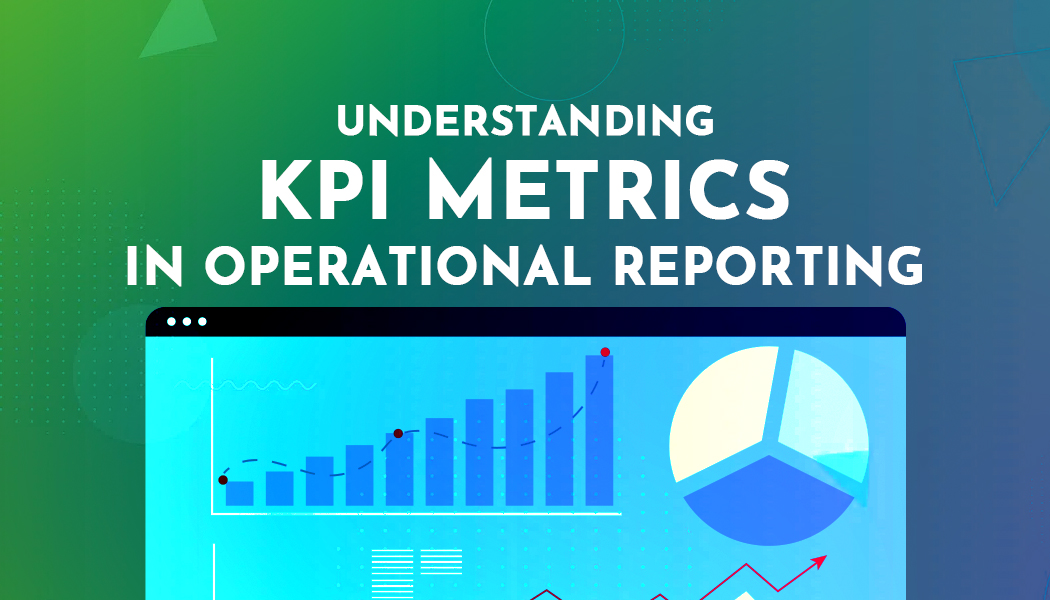Understanding KPI Metrics in Operational Reporting
Understanding key performance indicators (KPIs) in operational reporting is crucial for businesses as it helps them measure and evaluate their performance against established goals and objectives. KPI metrics provide valuable insights into the efficiency, productivity, and success of a business, allowing companies to make informed and data-driven decisions. This blog aims to provide clarity on this subject since many business owners would love to learn more so they can optimize their practices. If you're in need of advice, keep reading.
Role of KPI Metrics in Operational Reporting

KPI metrics play a fundamental role in operational reporting by providing meaningful insights into a company's operational status. Operational reports, often presented in the form of dashboards or scorecards, take advantage of these metrics to measure specific operations tactically, thereby representing clear evidence of the organization's operational health. Without KPI metrics, the usefulness of operational reporting, aimed at aiding day-to-day decisions, would be often distorted or biased.
Operational reporting often requires real-time data that KPI metrics can provide. This real-time data, when collated into a singular operational report, gives companies a snapshot of their operational performance, allowing them to pinpoint areas of improvement quickly. For instance, a decrease in the efficiency KPI may signal issues in the production process, prompting an immediate investigation to unearth the problems and implement appropriate corrective measures.
Furthermore, KPI metrics in operational reporting enable businesses to keep track of their performance and measure their operational activities against industry standards or compare themselves against their competitors. Understanding the position of a company within the industry can ignite corporate changes to increase competitiveness and improve business performance. Therefore, integrating KPI metrics with operational reporting is not only beneficial but also essential in contemporary business operations.
Crafting Appropriate KPIs for Superior Operational Reporting
Crafting a meaningful KPI that genuinely reflects the performance of your operation isn't as simple as it might seem. It often necessitates a thorough understanding of your business and its processes. Well-crafted KPIs should always be linked with the company's strategic objectives, they should be measurable, achievable, and pertinent. Having unrelated KPI metrics might result in misguided decisions that could lead to detrimental results for the company.
In operational reporting, you need to select KPIs that can provide valuable insights into your business operations. For instance, if your business prides itself on speedy delivery, a relevant KPI would be the 'average delivery time'. This KPI would enable you to determine whether your operational processes align with your business strategy. On the flip side, if your company focuses on producing high-quality products, then an appropriate KPI might be the 'rate of returns due to faulty products', helping you gauge the quality of your output.
KPI Metrics and the Future of Operational Reporting

The evolution of operational reporting and the use of KPI metrics are accelerating, thanks to innovations in data analytics and business intelligence. New technologies are enabling organizations for Data Extraction with greater precision and analyze it in real time, opening up new possibilities for the use of KPI metrics.
Emerging trends in operational reporting, like predictive analysis, use advanced algorithms to forecast future performance based on historical data and KPI metrics. Consequently, businesses can use these insights to adjust their strategies proactively rather than reacting to changes. This has the potential to transform how organizations conduct their operations, making prediction and prevention more viable than reaction and remedy.
Future operational reporting will likely be more interactive in nature, allowing users to manipulate data in different ways to spot trends and draw conclusions. As these technologies continue to evolve, the role and importance of KPI metrics in operational reporting are set to become even more significant, making understanding them a must for any organization that hopes to remain competitive in the future.
Altogether, understanding KPI metrics and their use in operational reporting is vital for an organization's success. From providing feedback about business performance to driving strategic decision-making, these metrics serve a key role in ensuring an organization meets and surpasses its goals. The continual implementation and analysis of such metrics allow businesses to act proactively, adjust their operational strategies to align with their goals, and make impactful decisions that drive growth. By harnessing the power of KPI metrics, organizations can improve their operational reporting processes, gain deeper insights into their operations, and ultimately drive business performance.




